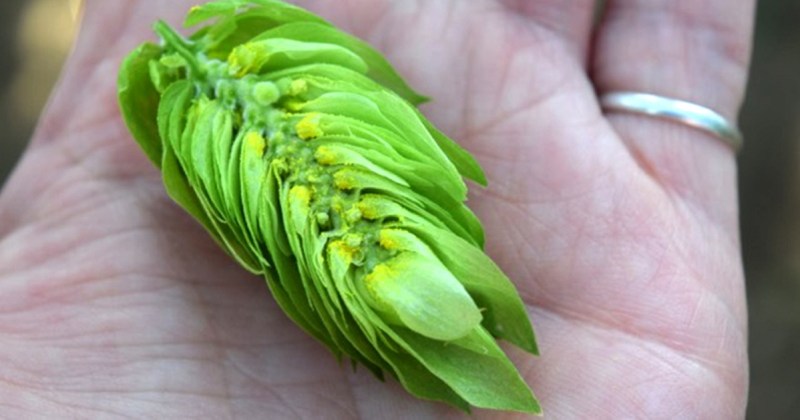
Beer is in a constant state of evolution, and hops, as an ingredient, trend according to shifting tastes and novel varieties.
Proprietary hops are owned by the private companies that develop and patent them. You can recognize them by their trademarked names (Citra, Simcoe, Amarillo, Mosaic, etc.), which are often plastered on the side of pale ales and IPAs as a point of reference. In 2017, some of the hops that are poised to make a splash are Idaho 7, Azacca, Cashmere and Jester, according to representatives from Crosby Hop Farm in Woodburn, Oregon, and Yakima Valley Hops in Yakima, Washington.
Idaho 7 balances an herbal bouquet with mild pine and juicy notes of stone fruit, pineapple and mango, while Azacca provides similarly fruity and tropical notes of papaya, mango and orange in deeper focus. Cashmere and Jester, meanwhile, hold appeal on more innovative fronts. Cashmere juxtaposes Northern Brewer and Cascade parentage to create simultaneously piney and tropical palettes. Jester, meanwhile, could challenge the American cornerstone on new hop varieties through its U.K.-grown aromas of lychee, grapefruit and black currant, say growers from Crosby Hop Farm.
(512) Brewing in Austin, Texas, uses Cashmere in its Cashmere SMaSH#4 IPA. BrewDog, meanwhile, uses Jester hops in its No Label dry-hopped kölsch.
Comet is a promising public hop variety that was pushed aside during the alpha acid craze of the ’90s and beyond. Developed by the USDA in the 1960s, Comet is a gently bittering, aromatic hop with hints of dank citrus, grapefruit and tropical fruit. The hop will reappear this spring as part of a resurgence of public breeding, and according to Kaleb Schwecke, who speaks on behalf of Yakima Valley Hops, Comet has taken on the industry nickname of “Citra’s little sister.”
Editor’s Note: An earlier version of this article stated that Cashmere is a proprietary hop, when in fact it is a public variety.
